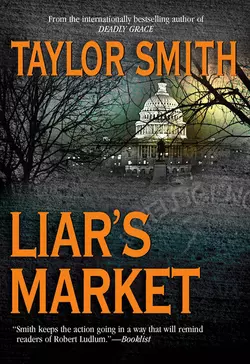Liar′s Market

Taylor Smith
Тип: электронная книга
Жанр: Современная зарубежная литература
Язык: на английском языке
Стоимость: 152.25 ₽
Статус: В продаже
Издательство: HarperCollins
Дата публикации: 16.04.2024
Отзывы: Пока нет Добавить отзыв
О книге: In Hong Kong a beautiful woman is pushed off a balcony to her death. In London a young American is gunned down outside the U.S. embassy. In Washington a senior CIA official vanishes into thin air. Random, unrelated events? Or pieces of the same puzzle?These events are no accidents, it seems, when it is discovered that the woman in Hong Kong had a CIA lover. That the London murder was a case of mistaken identity, and that the intended target was the wife of CIA senior deputy Drum MacNeil, who has since gone missing.To find MacNeil, investigators are taking a close look at his past actions, public and private. And at his restless wife, Carrie, who is doing her best to play the part of the innocent victim, even though it′s increasingly clear that Drum′s life has been a carefully constructed lie.Carrie MacNeil is about to learn firsthand about the evil of treachery. And in this business there are no fair-trade rules. It′s always a liar′s market.